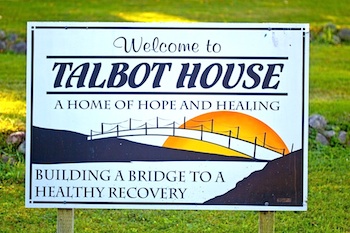27 Aug An abuse of government procurement standards
“One of this government’s least admirable traits,” said a friend who admires much the Dexter Government has done, “is its refusal to ever admit it made a mistake.”
The impulse to stay an obviously incorrect course is common enough in government, and it commonly leads to even greater error.
This month, the Dexter Government’s refusal to admit mistakes in its reprehensible treatment of a Cape Breton addiction recovery centre led to further error in the form of a dishonest procurement process.
 On Friday, the Board of Directors of Talbot House announced it would not submit a tender to supply the addiction recovery services it had provided in Cape Breton for the last 53 years until a series of indefensible actions by the Department of Community Services (DCS) forced it to shut down six months ago.
On Friday, the Board of Directors of Talbot House announced it would not submit a tender to supply the addiction recovery services it had provided in Cape Breton for the last 53 years until a series of indefensible actions by the Department of Community Services (DCS) forced it to shut down six months ago.
It was the right decision. The DCS request for proposals (RFP) was manifestly stacked against Talbot. Officials responsible for Nova Scotia’s procurement process should never have allowed it to go forward. That they did not intervene marks a significant backward step in ethical government purchasing.
No one in government or politics believes DCS would have issued the RFP if it did not have a candidate lined up to respond. Rumor has it the likely upstart bidder is Crosbie House, a recovery centre in New Minas that has presumably been enticed to open a branch plant in Cape Breton, possibly with support from the Membertou First Nation.
The RFP issued August 1 was unusually complex. It ran to more than 50 pages, and contained a highly prescriptive outline of how such a treatment centre would run (surprising in light of the fact DCS has no statutory authority over addiction treatment centres). There were many trip-wires in the form of detailed requirements that, if not precisely met, could disqualify a bidder. In addition to the RFP’s unusual length and complexity, it came with an unusually short return time. Bidders had until August 28 to complete and submit their detailed responses.
It is no exaggeration to say Talbot’s 10-member volunteer board—almost all of whom are busy professionals—would have had to commit several hundred person-hours to meet its terms.
 That burden, while onerous, would not have proven insurmountable had there been reason to believe a Talbot submission would be evaluated honestly and fairly. Unfortunately, there was compelling reason to conclude the opposite: it would be evaluated with extreme prejudice.
That burden, while onerous, would not have proven insurmountable had there been reason to believe a Talbot submission would be evaluated honestly and fairly. Unfortunately, there was compelling reason to conclude the opposite: it would be evaluated with extreme prejudice.
Tender evaluation teams traditionally have three or more members: a representative from the procurement office to advise on procedures, and two or more people knowledgeable in the subject area, in this case, addiction recovery services. Unusually, the DCS RFP had only two members: the traditional representative from procurement services, and Marika Lathem of DCS.
For anyone who has not been following the Talbot debacle, Lathem is the official who wrote the error-riddled report of her own biased “organizational review” of Talbot House, who laced that report with slanderous innuendo against Fr. Paul Abbass, and who then published the malicious report even though police had already cleared Abbass of the false charges she so enthusiastically promoted.
That an official with a track record this odious would be the only one to supply substantive evaluation of the proposals for addiction recovery is, on its face, an abuse of the tendering process.
Some of us are old enough to remember the days when Nova Scotia governments routinely corrupted the tendering process to reward friends and punish enemies. The development of rigorous, impartial tendering standards marks a signal achievement in the last generation of Nova Scotia government.
That the Dexter Government would be prepared to sweep those standards aside simply to avoid facing up to what DCS has done in this case is disheartening. That procurement officials would not stand up for the integrity of their system is dismaying.
